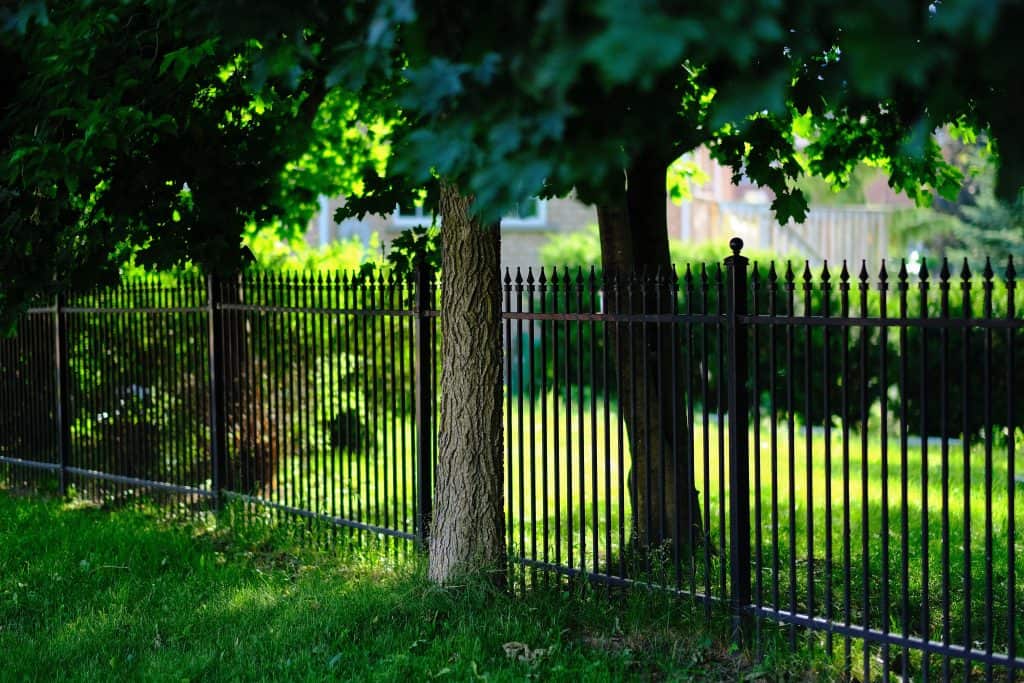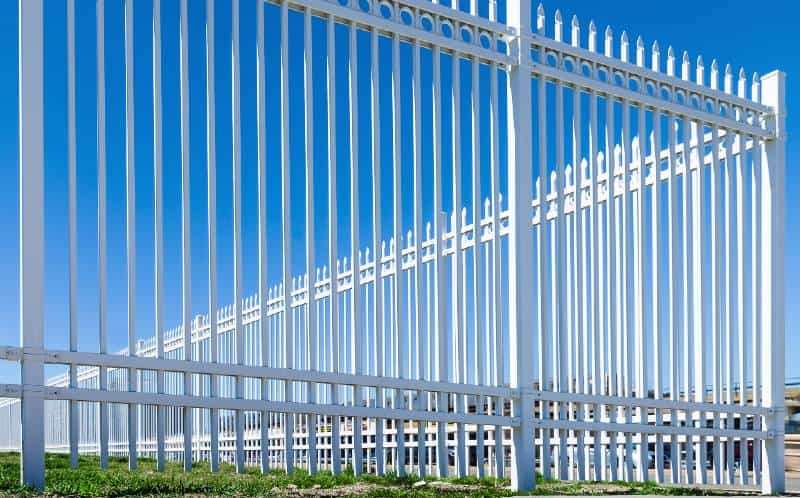Engineering Plans: Fences
Plan For The Perfect Fence
Help for your fence designs and fence plans for your next project.
Fences play the roles of identifying boundaries and properties and providing privacy and security. Fences also enhance your living and work areas by incorporating decorative elements & finishes.
There are a number of different fence materials you can choose from including wood fences, vinyl/PVC fences, composite fences, aluminum & steel fences, chain link, concrete, and more. Here you’ll discover a vast array of fence resources & plans to spark ideas for your next project.
Wood Fences
You can never go wrong with a wood fence design. Wood is a one of the most used options for fences, most readily available, and affordable. Wood fences can also be easily cut and customized to fit for your DIY project.
Wood fences can be solid for privacy or picket-style for a decorative finish. Privacy wood fences can be 100% solid like as in a presidential or board-on-board, or semi-private such as shadowbox or side-by-side with a break in between.
Wood fences need a post strong enough to support the fence in high wind conditions as well as a proper post footing & anchor connections. Fence Gates also need to consider extra forces due to the opening size and gate swing.
Find many sample fence plan designs from free plan samples and purchase engineer-certified plans for permit & construction using the link below.
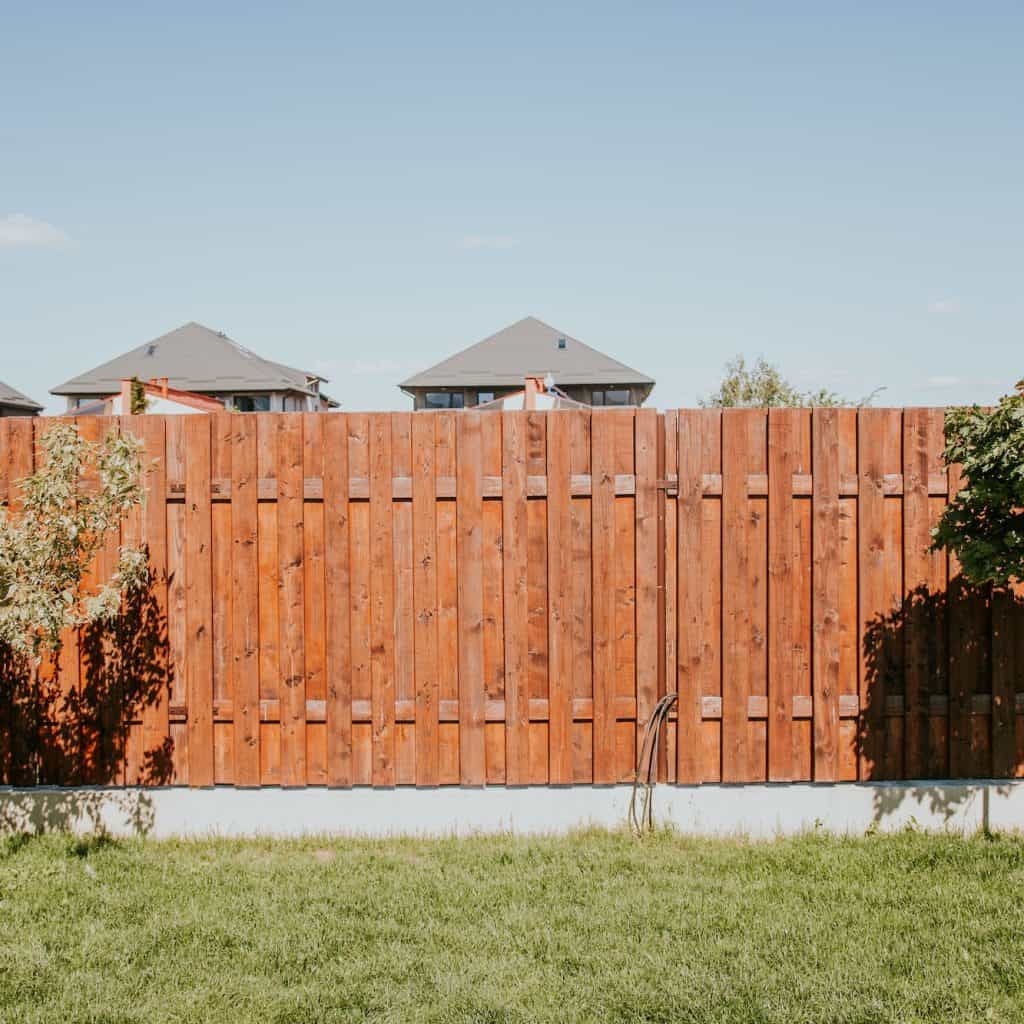
Aluminum & Steel Metal Fences
Metal fences provide a decorative, traditional finish to any outside enclosure. Metal fences are either constructed as mechanical (with screws and bolts) or welded (cleaner finish). It’s important to ask what fence type you’re purchasing as the finish details are noticeable.
Metal fences are finished to provide a finish color to your liking and further protect the metal. Popular colors are white, brown, and black, but many colors are available if you ask around. Dark green hides fences well in foliage and is a less-frequently used color.
Metal fences are typically open in nature (60%-80%) and allow wind to pass through. they are typically designed so that a 4″ sphere cannot pass through. Pool fences & gates have special codes to restrict access for children so check your local codes for special requirements such as high gate handles, not creating a ‘ladder’ fence effect, and self-closing hinges.
The fence plans in this link contain typical fence & pool enclosure code requirements. You can browse many styles & post & footing size options and order engineer-sealed fence plans for permit in your area when needed, or use them as a baseline to modify for your project with the plan engineer or an engineer of your own.
Vinyl - PVC - Composite Fences
Generally a more cost-effective option, vinyl style privacy fences can be a great choice if you’re budget-conscious. It’s also a low-maintenance option and offers great privacy and finish options and colors.
Fencing can be easily installed on your own but professional installation is recommended, not only for code compliance, but to ensure the fence parts and foundation meets the local wi nd, egress, and architectural restrictions of the area. Inadvertently placing a fence over your property could cost thousands to fix and may jeopardize the purchase of your home when the time comes. Fences of this material can be installed up to 12′ tall where permitted by code.
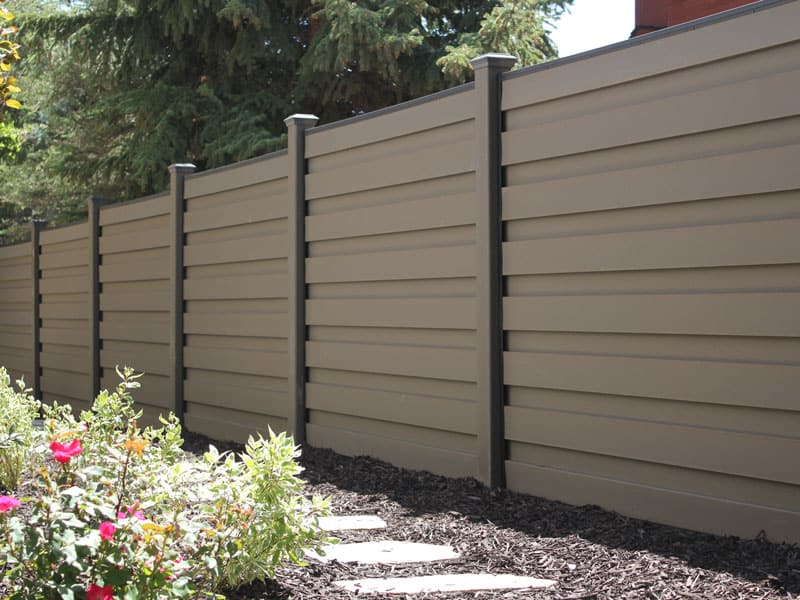
Trex® Composite Fencing Shown. Click Here For more.
Chain Link Fences
Typically more utility & commercial in nature, chain link fences provide additional & cost-effective security options to protect commercial & residential properties.
Additions such as barb-wire and the ability to install the chain link material below-groud provide additional security from those who can go over or burrow under the fence.
Many building codes pre-specify the type of chain link material, spans, heights & foundations that can be installed & remain code-compliant, but a design professional is typically needed to provide additional details and certified plans for permit.
One important item to note is that chain link fences that incorporate additional screen material (such as at tennis courts) or privacy slats invalidate chain link code compliance and add wind resistance which require additional post & footing considerations to protect against high winds.
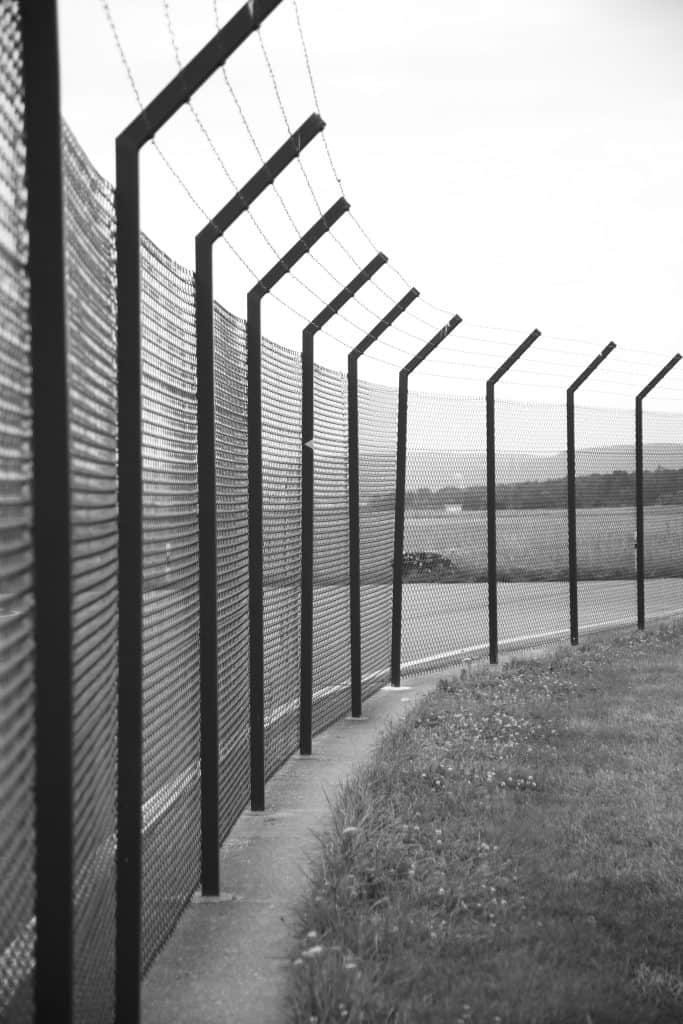
Specialty Fences
Specialty fences include custom variations such as open or solid concrete fences, block-style fences, and bamboo-woven fences. Each fence style comes with unique design & aesthetic considerations. Longevity of material, cost, appearance, security, and privacy are important factors to consider when thinking ‘out of the box’ from the more traditional fence designs. The end result can be rewarding when your area is enhanced with a unique and attractive fence design.
Fence manufacturers & distributors can connect with the plan engineers and discuss creating or modifying plans for their product lines.

